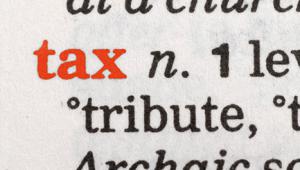The European Union’s executive announced yesterday that it had put together a “scoreboard” of the EU’s partner countries, marking them against a number of economic, financial, stability and good tax governance indicators.
EU member states will now be asked to use the scoreboard to identify countries they believe should be subject to further examination to determine whether they deserve a place on the blacklist.
Pierre Moscovici, commissioner for economic and financial affairs, taxation and customs said the list, which the commission aims to publish by the end of 2017, will be the EU’s “tool to deal with third countries that refuse to play fair”.
“The EU takes its international tax good governance commitments seriously. It is reasonable for us to expect the same from our international partners,” he added.
Many of the EU member states’ national authorities already have their own tax blacklists, but the commission said a common EU list will carry more weight than this current “patchwork”. It is hoped this will prevent aggressive tax planners from abusing mismatches between the different national systems.
The scoreboard, which the commission emphasised is not enough alone to draw conclusions on whether a country should end up on the final blacklist, is intended to help determine the “potential risk level” of each country’s tax system facilitating tax avoidance or evasion.
It uses three “selection indicators” to determine which countries are the most “economically relevant” to the EU, for example by grading the country’s economic ties to the block and how much financial activity takes place in that jurisdiction.
The selection indicators also look at “stability”, which covers factors like corruption and regulatory consistency, which would affect tax avoiders’ decisions to stash their money there.
Countries that ranked high in all of these selection factors are then tested against “risk indicators”, which look at a country’s financial transparency and whether it has a favourable or a zero rate corporate tax regime.
The majority of the countries seen as economically relevant to the EU have at least two of the three risk indicators, and cover countries as diverse as Hong Kong and Samoa.
A number of nations widely considered to be tax havens do feature on the list, such as Panama, which found itself at the centre of a global storm earlier this year after documents revealed how a law firm based in the small country helped the world’s rich and famous dodge their taxes, causing international outcry.
Others include Hong Kong, Mauritius, a number of Caribbean islands including Belize and Bermuda, and British Overseas Territories, like the Cayman Islands and the British Virgin Islands.
Five countries, including bastions of financial secrecy Switzerland and Andorra, are presented separately to other economically relevant countries because they have their own transparency agreements with the EU already in place.
Despite being ranked first on the Financial Secrecy Index, Switzerland is not considered as presenting a risk to transparency, according to the scoreboard.
Critics will also note that a number of EU countries themselves, such as Luxembourg and Germany, actually rank higher on the financial secrecy index than countries like Panama, while another member state, Ireland, has one of the most preferential corporate tax regimes in the developed world.












